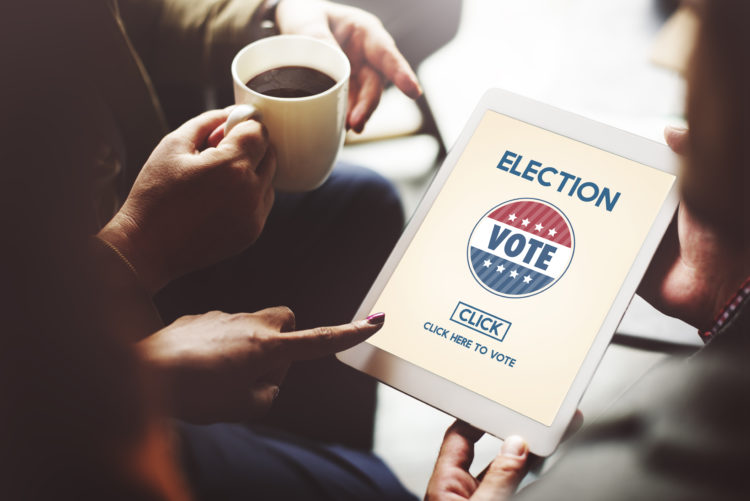
Photo Credit: shutterstock
What does it say about the current state of politics in this nation when billionaire candidates like Michael Bloomberg can simply buy up tens of millions of dollars of advertising and zoom up to the top of the polls? Despite not even actively campaigning in Iowa or New Hampshire, Bloomberg is now polling second in the Democratic field, trailing only Bernie Sanders. Even more distressing is the fact that Bloomberg might be completely inflating perceptions about the amount of enthusiasm and momentum he has around his presidential campaign by tapping into the influencer marketing game on social media.
Influencer marketing and politics
According to reports that have surfaced on mainstream media publications like The Daily Beast, Bloomberg’s campaign team has been soliciting support from social media micro-influencers on platforms such as Tribe, which describes itself as a “branded content marketplace.” Basically, on Tribe, brands reach out to micro-influencers (defined as people with anywhere from 1,000 to 100,000 followers on social media), telling them exactly what they are looking for in terms of content, and influencers have the option of responding or not. If they choose to endorse the brand, then they get paid upwards of $150 for their time and contribution.
And that’s exactly what the Bloomberg campaign appears to be doing – it is submitting short creative briefs to platforms like Tribe, telling micro-influencers it’s looking for content that will emphasize Bloomberg’s middle-class upbringing, his tireless work as a self-made businessman, his support of “progressive values” and his “electability.” Micro-influencers can then create custom content that they submit to the brand (in this case, the Bloomberg campaign), or they can post the content on their own social media feeds (with an identifying hashtag such as #sponcon). In short, if it seems like everyone has been gushing over Bloomberg on social media, then a possible reason might be because they are being paid to do so.
The ethics of political vote buying
Of course, all of this raises a lot of thorny ethical and moral issues. Is it really OK to promote a political candidate the same way you would a brand? Is it OK for candidates to create a false image of support and momentum, when none might exist in the first place? And is it really OK for big money billionaires to get involved in politics, thereby making it almost impossible for the “average Joe” to run for office and get elected?
While the practice of influencer marketing might seem unsavory, is it really any different from other forms of political vote buying – such as a candidate showing up in a small town and promising to build a new factory, hospital or bridge to juice up the local economy? And now that Donald Trump has shown that it’s possible for a billionaire with absolutely no experience in politics to get elected to the highest office in the land, is it any wonder that other billionaires are now starting to get into the game? In the alpha dog world of billionaire businessmen (and businesswomen), the whole “my yacht is bigger than your yacht” mentality now extends into the political realm as well.
Unintended consequences of influencer marketing
The sad thing about the Bloomberg influencer marketing campaign on social media is that it really resembles a giant multi-level marketing (MLM) scheme. To prove that his campaign has “the big mo” (momentum), Bloomberg has to keep pouring more and more money into influencer marketing. If he fails to do so, the critics will inevitably say that “his base is faltering” or “his supporters have lost faith in him,” so Bloomberg needs to spend, and spend, and spend some more as long as the “real” followers don’t start appearing soon. If people with 100,000 followers won’t back him, he’ll need to turn to people with 10,000 or even 1,000 followers, essentially giving them a cash bribe of $150 to say something nice about him.
Inevitably, this reliance on influencer marketing by politicians is going to make it much harder to trust the polls going forward. We’ve already seen how the Bloomberg campaign has used its huge cash hoard to buy its way onto the Democratic debate stage due to a sudden “pop” in the polls from incredible amounts of advertising. But what if all this is just smoke-and-mirrors, and all of this support and momentum turn out to be a giant illusion? The real loser will not be Bloomberg – it will be the American people.